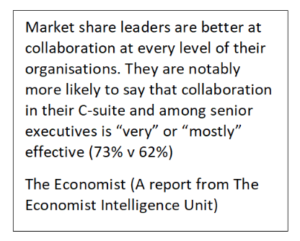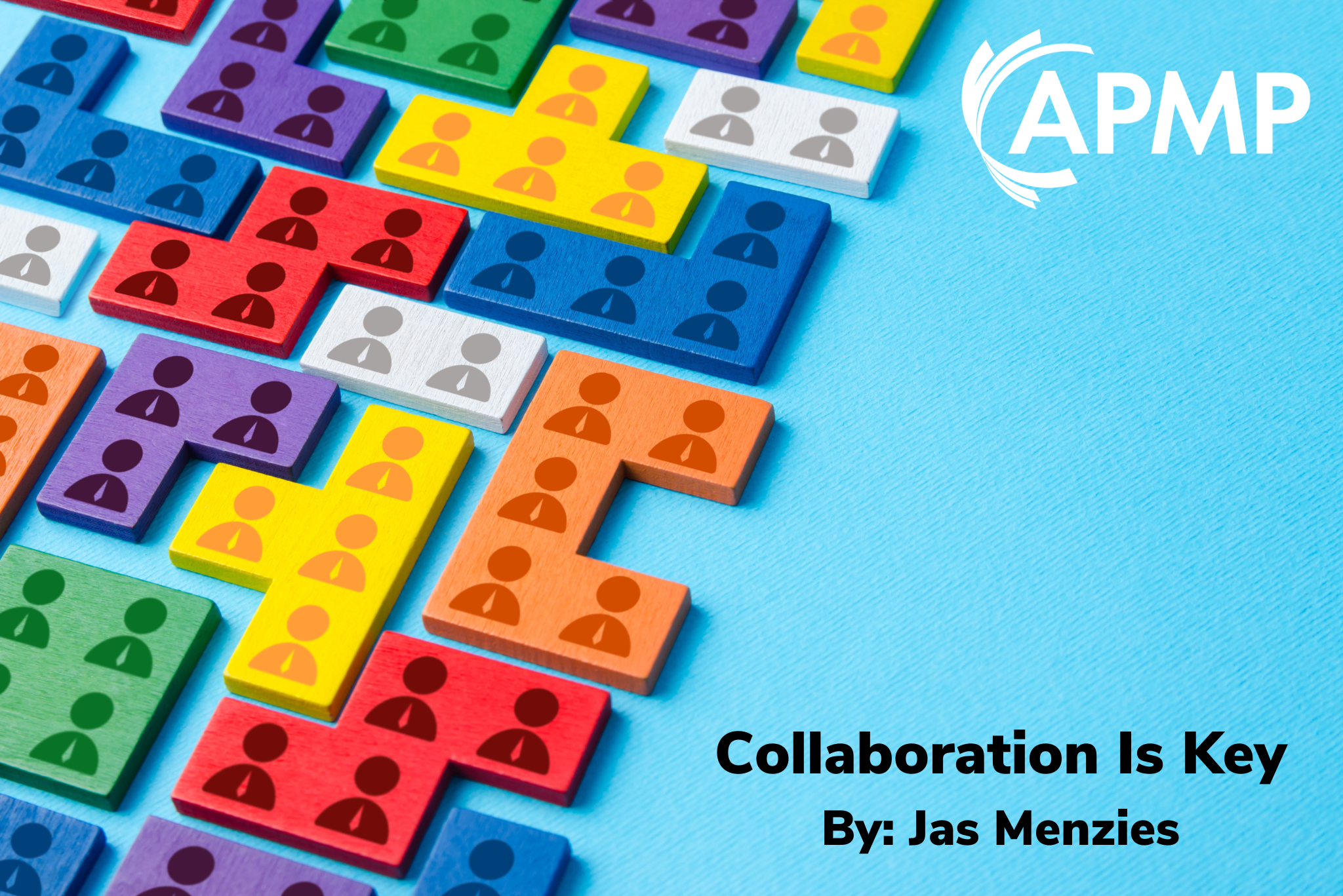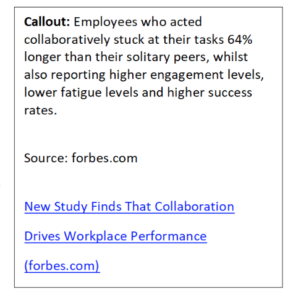Steve Jobs once said: ‘Great things in businesses are never done by one person; they’re done by a team of people.”
He could have been talking about a bid team.
Every opportunity is different. Each team is different. People collaborate differently. The core team, other parts of the business and the customer may have never worked together before. But to work effectively and get better results, collaboration is key.
Envision the win together
Imagine what it will feel like to win. Having this common goal seems obvious, but in the day-to-day bidding responsibilities and tasks, we may be focused only on the task at hand. Keep your eye on the prize, talk about how good it will feel, how it will impact the company, the kudos to you and the greater opportunities to come from this win.
Provide time, tools, and space for free-flowing collaboration
Collaboration post-Covid has disrupted some of the ways in which we work. But the principle of holding space for free-flowing discussion or even chats, will still facilitate lateral thinking, questions, discussion, and lead to innovation. As an example, allowing pause during meetings after someone has proposed a new idea, rather than jumping in provides space. It allows a moment to consider what has just been said, to respond more thoughtfully.
Communicate which tools you want the team to use, so everyone is in the same chat group, for example. Set expectations around using cameras or rooms in meetings, so everyone feels comfortable virtually, or in person. Have workshops and whiteboards to encourage discussion and visualization, and make sure everyone in the team has the chance to have some fun in the process.
Create a safe environment where people are prepared to take risks.
High-performing teams typically feel safe enough to take risks. A risk to a team member could look like:
- Proposing a different approach
- Defending an idea
- Providing feedback
- Admitting to a mistake
- Asking for help
- Offering suggestions
By creating a culture that people feel safe in, people will naturally feel more motivated to participate. The group will have ideas, suggestions, and questions that could lead to further exploration. Challenges could lead to a different approach. Encourage questions and thinking ‘outside the square’ and the results will quickly become apparent.
Welcome the newbies
Bid teams are often diverse, with experts drawn from different parts of the company, with an urgent need to work together quickly. Team members collaborate more naturally if they perceive themselves as being alike or have worked together before. If there are people in your bid team who are new to bidding, new to the team or do not have established relationships within your business, give them some focus. Consider their background, what they don’t know that the others do (for example your content library, your method of work). Provide an induction to proposals, welcome them, and make yourself available to help them feel part of the team.
Executive leadership will flow through to the team
 Each individual in the team affects the group dynamics, but it is well documented that culture is set by the executive. Leaders who are committed to creating safe, productive, and engaged teams demonstrate shared values which flow through to the rest of the organisation.
Each individual in the team affects the group dynamics, but it is well documented that culture is set by the executive. Leaders who are committed to creating safe, productive, and engaged teams demonstrate shared values which flow through to the rest of the organisation.
As Louis Gerstner, the former CEO of IBM, puts it, “I came to see, in my time at IBM, that culture isn’t just one aspect of the game — it is the game. In the end, an organization is nothing more than the collective capacity of its people to create value.”
And how do we win bids? By demonstrating value.
Author Information
Jas Menzies is a Head of Bid Management with over 15 years of specific bid management experience including implementing and improving bid process, mentoring, and managing bid teams, and leading bid teams on complex and major bids; across industries, but mostly in in Information Technology and Communications.




Join the Conversation